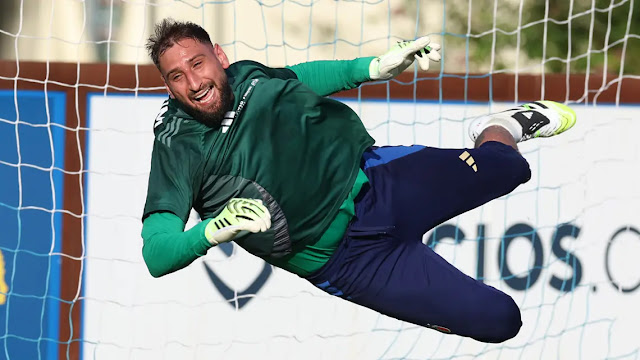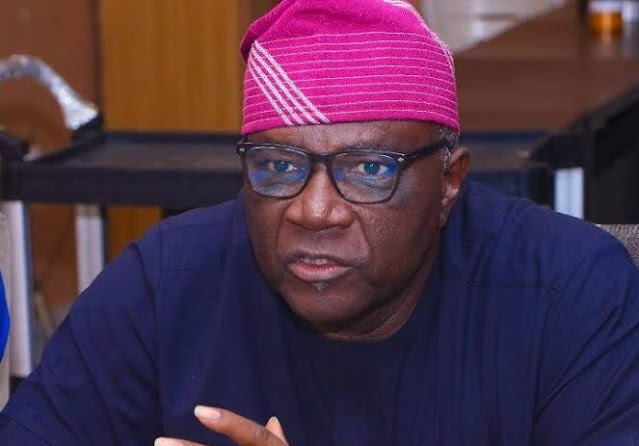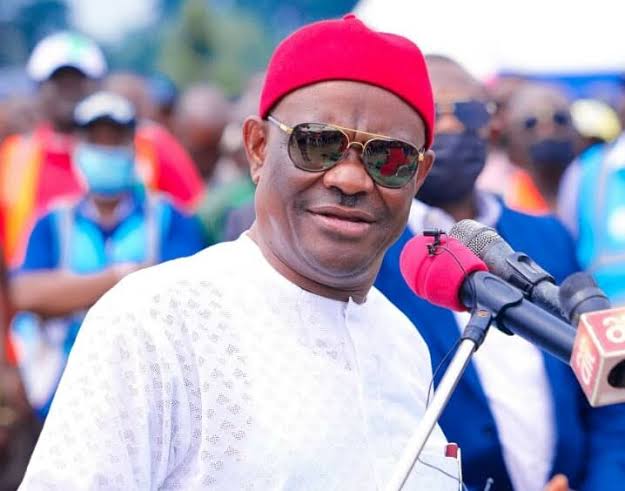In a significant move in the January 2025 transfer window, Sky Bet Championship club Sheffield United have secured the services of 19-year-old Nigerian winger Christian Nwachukwu from Bulgarian club Botev Plovdiv. The transfer, announced on February 4, 2025, via Sheffield United’s official website, marks a pivotal moment for both the young talent and the Blades, who are pushing for promotion to the Premier League. Nwachukwu, signed on a deal until 2027 with a two-year option, is seen as a key addition to manager Chris Wilder’s squad, aligning with the club’s innovative data-driven recruitment strategy. This article delves into the details of the transfer, explores its significance for Nwachukwu’s career and Sheffield United’s ambitions, and situates the move within the broader context of Nigerian footballers in European leagues, offering insights into the challenges and opportunities ahead.
Details of the Transfer
Sheffield United’s announcement confirmed that Christian Nwachukwu, a versatile and pacy winger, had joined the club from Botev Plovdiv, subject to the approval of relevant documentation. The 19-year-old signed a contract until 2027, with an option for a two-year extension, reflecting the club’s long-term investment in his potential. The transfer fee was undisclosed, but reports suggest it was a modest sum, given Botev’s position in the Bulgarian First League and Nwachukwu’s emerging status.
Manager Chris Wilder praised the signing, emphasizing its alignment with Sheffield United’s evolving recruitment approach. “Christian joins the club after being identified through our new data-driven transfer strategy,” Wilder said. “We are discovering something new here, and it may take time before we see some results, but we’re open to the new methods and we’re looking forward to working with Christian, and others, to see how far we can go with it.” Nwachukwu expressed enthusiasm about the move, stating, “I’m looking forward to coming to Sheffield to play for United and continue my development. I look forward to meeting the lads and getting started.”
The transfer comes at a critical juncture for Sheffield United, who are in the thick of the Championship promotion race, sitting third in the 2024-25 season with 45 points from 28 matches as of February 2025. Nwachukwu’s arrival bolsters the squad’s attacking options, complementing players like Kieffer Moore and Rhian Brewster, and adds youthful dynamism to Wilder’s tactical setup. The move also reflects the club’s ambition to blend emerging talents with experienced players to secure a return to the Premier League after their relegation in 2023-24.
Background: Nwachukwu’s Journey to Sheffield
Christian Nwachukwu’s path to Sheffield United is a testament to his potential and the growing pipeline of Nigerian talent in European football. Born in Nigeria, Nwachukwu’s early career details are sparse, but his move to Botev Plovdiv in Bulgaria marked his entry into European football. At Botev, he showcased his versatility, playing primarily as a right winger but capable of operating across the front line. His performances in the Bulgarian First League, where he reportedly scored four goals and provided three assists in 18 appearances during the 2024-25 season, caught the attention of scouts across Europe.
Nwachukwu’s attributes—speed, dribbling ability, and directness—made him an attractive prospect for Sheffield United, whose data-driven recruitment model prioritizes young, high-potential players with resale value. His signing follows the club’s trend of tapping into less traditional markets, such as Eastern Europe, to unearth gems, a strategy necessitated by financial constraints following their 2020-21 and 2023-24 relegations. The Blades’ scouting network, leveraging advanced analytics, identified Nwachukwu as a player capable of contributing immediately while developing into a long-term asset.
Strategic Motivations for Sheffield United
Sheffield United’s acquisition of Nwachukwu reflects a combination of tactical, financial, and strategic considerations:
Promotion Push: The Blades are focused on securing promotion to the Premier League, and Nwachukwu’s pace and creativity add depth to their attacking options. With competitors like Burnley and Leeds United strengthening their squads, Wilder’s team needed a versatile forward to maintain their edge.
Data-Driven Recruitment: Wilder’s acknowledgment of a “new data-driven transfer strategy” underscores Sheffield United’s shift toward analytics, a trend seen across European football. By targeting players like Nwachukwu from less competitive leagues, the club minimizes financial risk while maximizing potential upside.
Youth Investment: At 19, Nwachukwu represents a long-term investment. His contract until 2027, with a two-year option, allows Sheffield United to develop him into a key player or profit from a future transfer, aligning with their model of financial sustainability.
Squad Versatility: Nwachukwu’s ability to play multiple forward roles enhances Wilder’s tactical flexibility. The manager’s preference for a high-pressing, counter-attacking style suits Nwachukwu’s attributes, as seen in his performances at Botev Plovdiv.
Market Expansion: By tapping into the African market, Sheffield United diversifies its talent pool, following the success of clubs like Leicester City with Nigerian players like Kelechi Iheanacho and Wilfred Ndidi.
Implications for Nwachukwu’s Career
The move to Sheffield United is a significant step for Christian Nwachukwu, offering both opportunities and challenges:
Platform for Growth: The Championship, known for its competitiveness and physicality, provides Nwachukwu with a platform to test his abilities against seasoned professionals. Regular playing time could accelerate his development, positioning him as a future star.
Premier League Ambitions: If Sheffield United secure promotion, Nwachukwu could debut in the Premier League, a significant milestone for a 19-year-old. Even without promotion, a strong season could attract interest from top-tier clubs.
International Prospects: As a Nigerian talent, Nwachukwu is eligible for the Super Eagles, though he has yet to earn a senior cap. Strong performances could fast-track his inclusion, especially given Nigeria’s depth in attacking talent, including Victor Osimhen and Ademola Lookman.
Adaptation Challenges: The transition from the Bulgarian First League to the Championship involves a steep learning curve. Nwachukwu must adapt to a faster pace, physical demands, and tactical discipline, areas where other Nigerian players, like Kelechi Iheanacho at Sevilla, have struggled.
Pressure to Perform: With Sheffield United’s promotion aspirations, Nwachukwu faces immediate pressure to contribute. His modest goal tally in Bulgaria suggests he must improve his finishing to secure a regular role.
Broader Context: Nigerian Footballers in European Leagues
Nwachukwu’s transfer reflects the growing presence of Nigerian footballers in European leagues, a trend driven by talent, ambition, and systemic challenges:
Talent Pipeline: Nigeria’s success in producing footballers is evident in players like Victor Osimhen (Napoli), Ademola Lookman (Atalanta), and Taiwo Awoniyi (Nottingham Forest). Nwachukwu’s move follows this path, with his U-17 and U-20 international experience signaling his potential.
Adaptation Challenges: Nigerian players often face difficulties adapting to European leagues’ tactical and cultural demands. Iheanacho’s recent contract termination at Sevilla, due to his inability to fit into LaLiga’s high-pressing system, highlights these challenges. Nwachukwu must navigate similar hurdles in the Championship.
Economic Pressures: European clubs’ financial constraints, as seen in Sevilla’s squad management, often lead to short-term contracts or loans for African players, limiting stability. Nwachukwu’s three-year deal with an extension option offers more security, but his performance will determine his long-term future.
Cultural Integration: Language barriers, cultural differences, and isolation can hinder African players’ integration. Sheffield United’s supportive environment, with Wilder’s track record of nurturing young talent, could ease Nwachukwu’s transition.
Impact on Super Eagles: The performance of Nigerian players abroad directly affects the national team’s competitiveness. Nwachukwu’s potential inclusion in the Super Eagles could bolster Nigeria’s attacking depth for the 2026 World Cup qualifiers.
Socio-Economic Context: Nigeria’s Football Ecosystem
Nwachukwu’s transfer highlights broader dynamics in Nigeria’s football ecosystem:
Youth Development: Nigeria’s success in youth tournaments, such as the FIFA U-17 World Cup, produces talents like Nwachukwu. However, the Nigeria Professional Football League (NPFL) lacks the infrastructure to retain these players, pushing them to Europe early.
Economic Contributions: Nigerian players abroad contribute significantly to the economy through remittances and sponsorships. Nwachukwu’s potential earnings in the Championship could add to this, though his modest background suggests a focus on career development over immediate financial gain.
Fan Expectations: Nigerian fans, active on platforms like X, have celebrated Nwachukwu’s move, with posts praising his potential to emulate stars like Jay-Jay Okocha. However, expectations are high, and any struggles could lead to scrutiny.
Social Mobility: Football remains a pathway out of poverty for many Nigerian youths. Nwachukwu’s journey from Nigeria to Bulgaria to England inspires aspiring players, but also underscores the risks of early moves abroad.
Historical Context: Sheffield United and African Talent
Sheffield United’s signing of Nwachukwu aligns with their history of engaging African talent, though their track record is modest compared to clubs like Leicester or Watford. The Blades previously signed Nigerian striker William Osula in 2024, who was later sold to Newcastle United for an undisclosed fee. Other African players, such as Senegalese striker Iliman Ndiaye, have also starred for the club, highlighting their openness to diverse markets.
The club’s data-driven approach, as emphasized by Wilder, draws inspiration from models like Brentford and Brighton, which use analytics to identify undervalued players. Nwachukwu’s signing from Botev Plovdiv, a relatively obscure market, reflects this strategy, positioning Sheffield United as a forward-thinking club in the Championship.
Challenges for Nwachukwu and Sheffield United
Both Nwachukwu and Sheffield United face significant challenges:
For Nwachukwu:
Adaptation to Championship: The physicality and pace of the Championship, coupled with England’s climate and cultural differences, will test Nwachukwu’s resilience.
Competition for Places: Competing with established attackers like Moore and Brewster requires consistent performances, particularly in a promotion-chasing team.
Pressure of Expectations: As a Nigerian talent, Nwachukwu carries the weight of national expectations, amplified by social media scrutiny.
Injury Risks: The Championship’s grueling schedule increases injury risks, which could derail his development if not managed carefully.
For Sheffield United:
Integration of Youth: Integrating a 19-year-old into a promotion-focused squad requires careful management to balance immediate contributions with long-term development.
Financial Constraints: The Blades’ history of financial challenges post-relegation limits their ability to make additional signings, increasing reliance on players like Nwachukwu.
Fan Expectations: Sheffield United fans, eager for promotion, expect immediate results. Nwachukwu’s adaptation period could test their patience if he struggles initially.
Opportunities for Success
The transfer presents significant opportunities:
For Nwachukwu:
Development Under Wilder: Chris Wilder’s track record of nurturing young talent, as seen with players like David McGoldrick, could help Nwachukwu thrive.
Exposure in Championship: The Championship’s high-profile status offers a platform to showcase his skills, potentially attracting Premier League interest.
Path to Super Eagles: Strong performances could earn Nwachukwu a call-up to Nigeria’s senior team, enhancing his profile.
For Sheffield United:
Promotion Boost: Nwachukwu’s pace and creativity could provide a decisive edge in key matches, supporting the Blades’ promotion bid.
Financial Upside: If Nwachukwu develops into a star, his resale value could provide significant financial returns, supporting the club’s sustainability.
Market Expansion: Success with Nwachukwu could encourage further investment in African talent, diversifying the squad and scouting network.
Policy Recommendations
To maximize the impact of Nwachukwu’s transfer and support Nigerian players in Europe, the following recommendations are proposed:
Enhanced Player Support: Sheffield United should provide comprehensive integration programs, including language training, cultural orientation, and mentorship, to ease Nwachukwu’s transition.
Strengthen NPFL: The Nigerian government and NFF should invest in the NPFL to create a viable domestic platform, reducing the need for young players to move abroad prematurely.
Career Guidance: The NFF and agents should prioritize long-term career planning for Nigerian talents, ensuring moves align with players’ styles and development needs.
Data-Driven Scouting: Clubs like Sheffield United should continue refining data-driven recruitment to identify undervalued talents, sharing best practices with smaller clubs.
Fan Engagement: Both Nwachukwu and Sheffield United should leverage platforms like X to communicate with fans, building support and managing expectations.
Injury Prevention: Implementing robust fitness and injury prevention programs will protect Nwachukwu from the Championship’s physical demands.
Broader Implications for Football and Nigeria
Nwachukwu’s transfer has broader implications:
Global Football Trends: The move reflects the increasing globalization of football, with clubs like Sheffield United tapping into emerging markets like Nigeria and Bulgaria.
African Talent Pipeline: Nigeria’s role as a talent hub underscores the need for sustainable development systems to protect players from exploitative contracts.
Economic Impact: Successful Nigerian players abroad boost Nigeria’s economy through remittances and sponsorships, with Nwachukwu’s potential earnings contributing to this.
National Pride: Nwachukwu’s success could inspire a new generation of Nigerian players, reinforcing football’s role as a source of national identity.
Looking Ahead: A Bright Future for Nwachukwu and Sheffield United
Christian Nwachukwu’s move to Sheffield United marks a significant milestone in his career and the club’s promotion ambitions. For the 19-year-old, the Championship offers a platform to showcase his talent, potentially propelling him to the Premier League and the Super Eagles. For Sheffield United, Nwachukwu represents a bold investment in youth and analytics, aligning with their vision for sustainable success.
As Nigeria continues to produce world-class footballers, Nwachukwu’s journey underscores the opportunities and challenges of navigating European football. With the right support, he can emulate the success of compatriots like Osimhen and Lookman, while Sheffield United can leverage his talent to achieve their goals. The transfer is a testament to the power of data-driven recruitment and the enduring allure of Nigerian football talent on the global stage.






